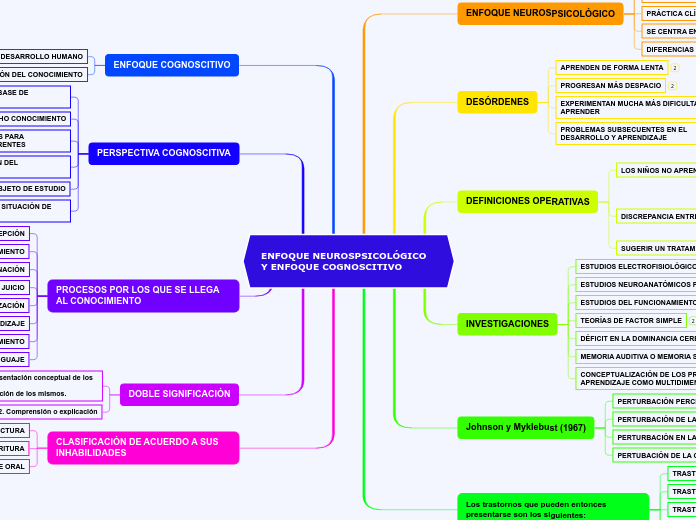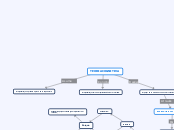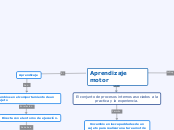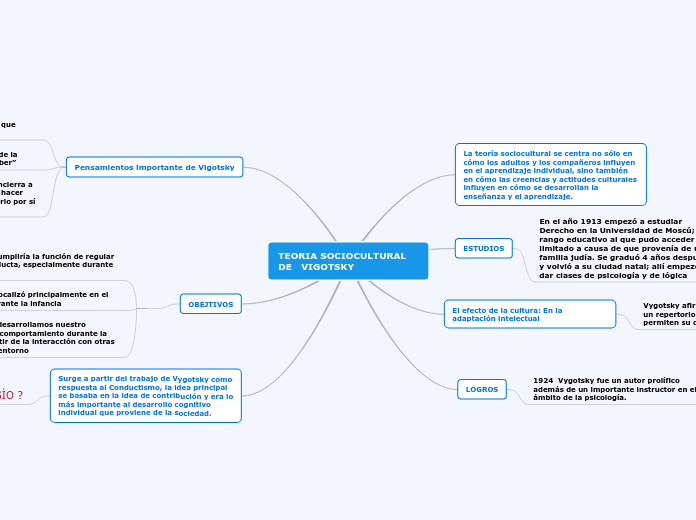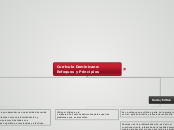ENFOQUE NEUROSPSICOLÓGICO Y ENFOQUE COGNOSCITIVO
The part of speech is a category to which a word is assigned according to its syntactic functions. In English the main parts of speech are noun, pronoun, adjective, determiner, verb, adverb, preposition, conjunction, and interjection.
CLASIFICACIÓN DE ACUERDO A SUS INHABILIDADES
A conjunction is a word like 'if' 'but' or 'and' which is used to connect sentences or clauses together.
LENGUAJE ORAL
ESCRITURA
Subordinating conjunctions are conjunctions that are used at the beginning of subordinate clauses. Some examples of these conjunctions are: although, after, before, because, how, if, once, since, so that, until, unless, when etc.
Although it was raining, I went out.
LECTURA
Coordinating conjunctions always connect phrases, words, and clauses. They are: for, and, nor, but, or, yet, so.
This stew is savory and delicious.
DOBLE SIGNIFICACIÓN
A preposition is one of the most exciting parts of grammar. A preposition is used to describe the location of something in relation to something else.
2. Comprensión o explicación
Compound preposition consists of two or more words.
on behalf of, according to, in front of, from across, etc.
1. La captación o representación conceptual de los objetos,
partiendo de la percepción de los mismos.
When a preposition consists of one word it is called single or simple preposition.
in, at, on, to for, of, from, up, after, over, under, with, etc.
PROCESOS POR LOS QUE SE LLEGA AL CONOCIMIENTO
An interjection is used to express emotion in a sentence.
Think of other interjections!
LENGUAJE
PENSAMIENTO
APRENDIZAJE
MEMORIZACIÓN
JUICIO
IMAGINACIÓN
DESCUBRIMIENTO
PERCEPCIÓN
PERSPECTIVA COGNOSCITIVA
An adverb is used to describe a verb, but it can also describe an adjective or another adverb.
Adverbs normally help paint a fuller picture by describing how something happens.
INTERACCIÓN DEL ALUMNO EN SITUACIÓN DE APRENDIZAJE
Especially, Specifically, Merely, Either
EL ESTUDIANTE ES EL OBJETO DE ESTUDIO
A lot, Little, Much
SE CENTRA EN LA ADQUISICIÓN DEL CONOCIMIENTO
The intensifiers strengthen adverbs adjectives and adverbs and down- toners make them weaker.
down-toners
Fairly, Rather
intensifiers
Extremely, Very
APLICA Y ASOCIA ESTRATEGIAS PARA AMBIENTES EDUCATIVOS DIFERENTES
Just, Afterward, Soon, Currently
INTERACTUA CON DICHO CONOCIMIENTO
Always, usually, Never
EL INDIVIDUO CONSTRUYE SU BASE DE CONOCIMIENTO
Carefully, Slowly
ENFOQUE COGNOSCITIVO
A numeral is a word or phrase that describes a numerical quantity.
Some theories of grammar use the word 'numeral' to refer to cardinal numbers that act as a determiner to specify the quantity of a noun, for example the 'two' in 'two hats'.
PROCESO DE ADQUISICIÓN DEL CONOCIMIENTO
One, two..
ESTUDIA EL DESARROLLO HUMANO
First, second..
Los trastornos que pueden entonces presentarse son los siguientes:
TRASTORNOS NO VERBALES DE APRENDIZAJE
TRASTORNOS EN LA ARITMÉTICA
TRASTORNOS DE LENGUAJE ESCRITO
TRASTORNOS DE LECTURA
TRASTORNOS DE LENGUAJE AUDITIVO
Johnson y Myklebust (1967)
An article is a word used to modify a noun, which is a person, place, object, or idea. Technically, an article is an adjective, which is any word that modifies a noun.
PERTUBACIÓN DE LA CONCEPTUALIZACIÓN
PERTURBACIÓN EN LA SIMBOLIZACIÓN
PERTURBACIÓN DE LA IMAGINERIA
Indefinite articles are the words 'a' and 'an.' Each of these articles is used to refer to a noun, but the noun being referred to is not a specific person, place, object, or idea. It can be any noun from a group of nouns.
A car in the parking lot.
PERTURBACIÓN PERCEPTUAL
It refers directly to a specific noun or groups of nouns.
The breakfast on my plate.
INVESTIGACIONES
A pronoun is a word that can be used in place of a noun, typically after the noun itself has already been stated.
CONCEPTUALIZACIÓN DE LOS PROBLEMAS DE APRENDIZAJE COMO MULTIDIMENSIONAL
Relative pronouns are used to add more information to a sentence. Which, that, who (including whom and whose), and where are all relative pronouns.
Which, Where
MEMORIA AUDITIVA O MEMORIA SENSORIAL
Interrogative pronouns are used in questions. Although they are classified as pronouns, it is not easy to see how they replace nouns. Who, which, what, where, and how are all interrogative pronouns.
Which, Who
DÉFICIT EN LA DOMINANCIA CEREBRAL
Reciprocal pronouns are used for actions or feelings that are reciprocated. The reciprocal pronouns are each other and one another.
Each other, one another
TEORÍAS DE FACTOR SIMPLE
A reflexive pronoun ends with ...self or ...selves and refers to another noun or pronoun in the sentence (usually the subject of the sentence). The reflexive pronouns are myself, yourself, herself, himself, itself, ourselves, yourselves, and themselves.
Itself, Himself
ESTUDIOS DEL FUNCIONAMIENTO HEMISFÉRICO
Demonstrative pronouns are used to demonstrate (or indicate). This, that, these, and those are all demonstrative pronouns.
This, These
ESTUDIOS NEUROANATÓMICOS POSTMORTEM
Possessive pronouns are used to show possession. The possessive pronouns are mine, yours, his, hers, ours, and theirs.
His, Your
ESTUDIOS ELECTROFISIOLÓGICOS
The personal pronouns are I, you, he, she, it, we, they. More often than not (but certainly not always), they replace nouns representing people.
He, They
DEFINICIONES OPERATIVAS
An adjective is a word that's used to describe a specific noun and to provide more detail to the listener.
SUGERIR UN TRATAMIENTO ESPECÍFICO
DISCREPANCIA ENTRE
Superlative adjectives demonstrate a higher level of comparison between entities.
LOGRO ACADÉMICO
APTITUD PARA EL APRENDIZAJE
LOS NIÑOS NO APRENDEN
Expresses a comparison between two entities or groups of entities in quality or degree.
MOSTRANDO OPORTUNIDADES
MOSTRANDO INTELIGENCIA NORMAL
DESÓRDENES
A noun is defined as a person, place, thing or idea. Proper nouns always begin with a capital letter. Common nouns, which are general words, such as 'cars,' are not capitalized.
PROBLEMAS SUBSECUENTES EN EL DESARROLLO Y APRENDIZAJE
Compound nouns are words where two nouns have been stuck together to make a new noun. Compound nouns should be written as one word, without a hyphen.
Candlestick
EXPERIMENTAN MUCHA MÁS DIFICULTAD PARA APRENDER
A noun which refers to a group of things/people.
Family, Class
PROGRESAN MÁS DESPACIO
Countable nouns are nouns that can be counted, even if the number might be extraordinarily high.
Uncountable nouns are nouns that come in a state or quantity which is impossible to count; liquids are uncountable, as are things which act
like liquids.
Cats, Rain
APRENDEN DE FORMA LENTA
Proper nouns are the names of specific people or places. They should always begin with a capital letter.
Mary, Paris
ENFOQUE NEUROSPSICOLÓGICO
A verb is an action word or 'doing' word that signifies movement in some way.
DIFERENCIAS CUANTITATIVAS Y CUALITATIVAS
An auxiliary verb helps the main (full) verb and is also called a 'helping verb.' With auxiliary verbs, you can write sentences in different tenses, moods, or voices.
You have been practicing hard.
SE CENTRA EN EL SISTEMA NERVIOSO CENTRAL
A participle is a verb form that can be used as an adjective or to create a verb tense. There are two types of participles: Present participle (ending -ing) and Past participle (usually ending -ed, -d, -t, -en, or -n).
The winning athlete gets a trophy.
PRÁCTICA CLÍNICA
A modal is a type of auxiliary (helping) verb that is used to express: ability, possibility, permission or obligation. The main modal verbs in the English language are: can, could, may, might, must, shall, should, will, would.
I might go to the park if I get my homework done.
OBTIENE DATOS
A linking verb connects the subject with a word that gives information about the subject, such as a condition or relationship.
You look exhausted after studying all night.
RELACIONES CEREBRO-CONDUCTA
A verb with its own meaning: a verb that is not an auxiliary verb.
Create sentences
They have it.
